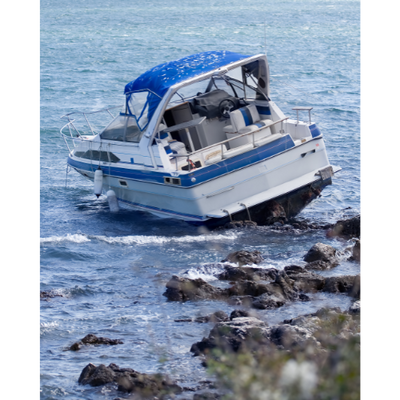- 1-905-452-8193
- Contact Us
- Member Login
- Get Listed Today
- 220,911 members

Getting out on the water on a boat is a fun recreational activity, and a great pastime. However, like with any physical pursuit, boating comes with its own share of risks. It is important to understand the potential injuries that could occur on a boat and when it could be the boat owner or captain who is liable for negligence when those injuries occur. This can help you determine when it could be time to speak with a boat accident lawyer about a potential personal injury claim.
Types of Boating Injuries
There are various types of injuries that can happen while on a boat, some of the most common boating injuries include:
Slips, Trips, and Falls - Boat decks can get very slippery due to water, algae, or other substances. Slips, trips, and falls are common accidents that can occur on boats. These types of injuries often lead to sprains, fractures, or bruises. To prevent such incidents, ensure the deck is clean, use non-slip surfaces, and encourage proper footwear.
Collision Injuries - Although it might seem unlikely to run into something else out on the open water it is possible, even more so when trying to dock a boat at a marina. Collisions with other boats, structures, or submerged objects can result in injuries ranging from minor cuts and bruises to more severe trauma. It is important to practice safe navigation, and to maintain proper attention while on a boat.
Drowning and Near-Drowning - The last thing anyone wants is for a person to fall overboard. Unfortunately these sorts of accidents can happen leading to drowning or near-drowning incidents. All passengers should wear life jackets, especially in open water or when engaging in water activities. Also, having a designated spotter for water sports to enforce safety guidelines is helpful.
Propeller Injuries - Boat propellers also pose a significant risk, causing severe lacerations and even amputations. To prevent propeller injuries, make sure to follow all safety rules laid out for passengers entering and exiting the water. Boat owners should also use propeller guards, and educate all individuals on the potential dangers associated with propellers.
Burns and Scalds - Although people associate boats with water, as rightly they should, boats also have fuel, engine parts, and other flammable materials on a boat which can increase the risk of burns and scalds. Implementing proper maintenance procedures, having fire extinguishers on board, and educating passengers on fire safety protocols are crucial preventive measures.
Weather-Related Injuries - While out on the boat you can end up caught in adverse weather conditions, such as extreme heat, cold, or storms. All of these can lead to weather-related injuries. Make sure that you are appropriately dressed for the conditions, monitor weather forecasts, and have a well-equipped first aid kit are vital safety measures.
Carbon Monoxide Poisoning - Boats with enclosed cabins or spaces can be at risk for carbon monoxide poisoning, especially if there are malfunctioning exhaust systems. It is important to make sure that boat owners regularly maintain the engine and exhaust systems of the vessel to make sure that there is proper ventilation. Installing carbon monoxide detectors can also mitigate this risk.
Boating Injury Can Lead To Personal Injury Claims
While boating is a delightful pastime, it is important to recognize the potential risks associated with water activities and if you are the boat owner to deal with any issues in a timely manner. If you are a passenger on someone else’s boat whether it be a small fishing boat, a yacht, or even a cruise liner you trust that your time will be safe and enjoyable. When boat owners are negligent it can lead to serious injuries. If you have been injured while on a boat it could be worth it to speak with a boating injury lawyer near you about whether you have a case or not. Prioritizing safety through education, adherence to guidelines, and proper equipment can go a long way in minimizing the occurrence and severity of boat-related injuries.
